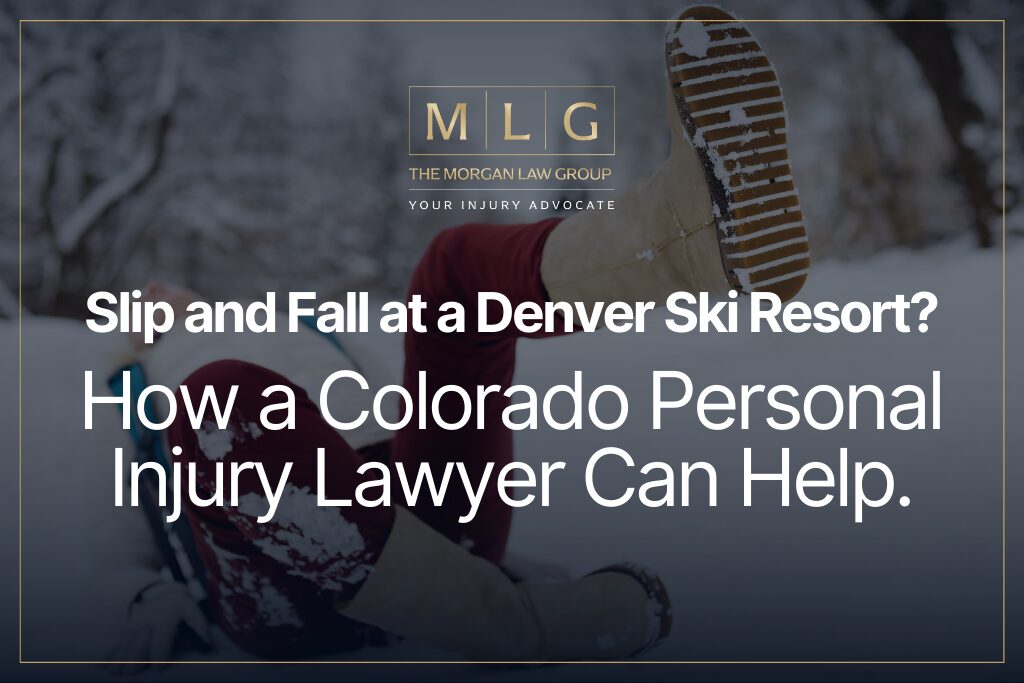Skiing in Colorado offers thrilling experiences amid stunning landscapes. However, the adventure comes with its risks, including the possibility of slip and fall accidents at ski resorts. Understanding the intricacies of these incidents, the concept of negligence involved, the damages that can be recovered, and how a Colorado personal injury lawyer can assist, is crucial for anyone facing such unfortunate circumstances.
Understanding Slip and Falls at a Ski Resort
Slip and falls at ski resorts represent a significant concern, as they often occur in places where guests might not anticipate encountering danger. These incidents can happen in a variety of settings within the resort’s premises, extending far beyond the ski slopes themselves.
- Icy Walkways and Parking Lots – One of the most common places where slip and fall accidents occur is on icy walkways and parking lots. Despite efforts to salt or sand these areas, changing temperatures and constant foot traffic can lead to slick surfaces that pose a risk to resort guests.
- Uneven Surfaces in Lodges – Inside the resort, lodges can also be hotspots for accidents. Uneven flooring, wet surfaces from snow and ice being tracked indoors, and poorly maintained carpeting or tiles can lead to falls.
- Around Resort Premises – Other areas around the resort, such as outdoor patios, staircases, and access pathways, can also become hazardous. Inadequate lighting, missing handrails, and unexpected steps are additional factors that contribute to slip and fall incidents.
Unlike the risks associated with skiing or snowboarding down slopes, which participants generally accept as part of the sport, slip and fall accidents in these other areas may not be anticipated. Ski resort guests might reasonably expect that walkways, lodges, and other common areas will be maintained in a safe condition, free from preventable hazards.
Negligence in Ski Resort Slip and Falls
When negligence on the part of the ski resort is evident, such as failing to properly clear, the injured individual may have grounds for a personal injury claim. Negligence occurs when there is a failure in any of these areas, leading to an unsafe condition that causes an accident. To establish negligence in a legal sense, three fundamental elements must be proven:
- Duty of Care – The first one is to demonstrate that the ski resort had a legal obligation to ensure the safety of its guests. This duty of care is inherent to the operation of the resort, obligating them to take reasonable steps to prevent accidents and injuries.
- Breach of Duty – The next element involves proving that the resort failed to meet its duty of care. This could be through actions taken or neglected, such as not adequately clearing ice from walkways, failing to repair damaged equipment or facilities, or not posting signs warning of potential dangers.
- Causation – Finally, it must be shown that the breach of duty directly caused the injury. This means that the accident and resulting injuries would not have occurred if the resort had fulfilled its duty of care.
Proving negligence in the context of a ski resort slip and fall is critical for a successful legal claim. Given the complexities involved in proving negligence and the nuances of ski accident law in Colorado, individuals who have experienced a slip and fall at a ski resort are strongly advised to seek a personal injury law firm in Colorado for legal assistance.
Recoverable Damages After the Accident
In the aftermath of a slip and fall accident at a ski resort, the types of damages a victim might be eligible to recover span both economic and non-economic categories.
- Economic Damages – Economic damages include tangible costs like medical expenses, which cover both immediate and long-term healthcare needs arising from the injury, and lost wages, which compensate for the victim’s inability to work during recovery.
- Non-Economic Damages – Non-economic damages address the intangible impacts of the accident, such as pain and suffering, which encompass the physical discomfort and emotional distress experienced, and loss of enjoyment of life, which relates to the diminished capacity to engage in leisure activities or hobbies that were part of the victim’s life before the accident.
These damages aim to provide a comprehensive financial remedy that reflects the full scope of the victim’s suffering and loss, thereby facilitating a more complete recovery process.
How a Colorado Personal Injury Lawyer Can Help With Your Claim
Suffering a slip and fall at a Denver ski resort can be a distressing experience, but knowing the steps to take afterward is crucial. Recognizing the role of negligence, understanding the damages you are entitled to, and seeking the expertise of a Colorado personal injury lawyer are key to ensuring you receive the compensation you deserve.
Our personal injury lawyer in Denver, CO, specializing in ski accident law at The Morgan Law Group, can be instrumental in navigating the complexities of Colorado slip and falls. Here is how they can help:
- Knowledge of Colorado Laws – Understanding the nuances of slip and fall law and ski accident law in Colorado is crucial for building a strong case.
- Investigation and Evidence Gathering – Our personal injury lawyer in Denver, CO can gather necessary evidence, including accident reports, witness statements, and medical records, to support your claim.
- Negotiation With Insurance Companies – Our experienced lawyers can handle negotiations with insurance companies to ensure fair compensation is offered.
- Litigation – If necessary, our Colorado personal injury lawyer can represent you in court, presenting a compelling case on your behalf.
By seeking professional legal assistance, you can better understand your rights and the avenues available for seeking justice and compensation. Whether it is negotiating with insurance companies or representing your case in court, our skilled personal injury lawyer in Denver, CO, will advocate on your behalf, aiming to secure the best possible outcome for your situation. Contact us today to schedule your free consultation.

